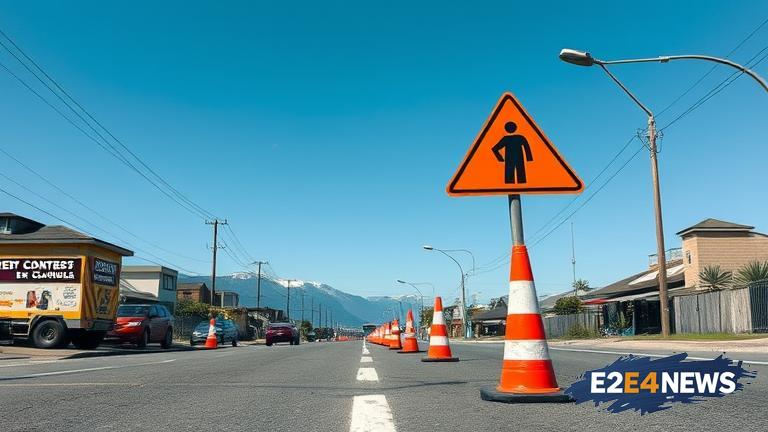The issue of excessive road cone usage by funding councils in New Zealand has come under scrutiny, with many questioning the rationale behind the practice. According to reports, the councils have been using a large number of road cones to manage traffic flow, often resulting in unnecessary congestion and frustration for motorists. The problem has been exacerbated by the lack of clear guidelines and regulations governing the use of road cones, leaving councils to their own devices. As a result, many have resorted to using road cones as a quick fix, rather than investing in more sustainable and efficient solutions. The consequences of this approach are far-reaching, with motorists facing increased travel times, and taxpayers footing the bill for the unnecessary expenditure. Furthermore, the environmental impact of the excessive road cone usage cannot be ignored, with the production and disposal of the cones contributing to waste and pollution. In response to the criticism, funding councils have defended their actions, citing the need for safety and traffic management. However, their arguments have been met with skepticism, with many arguing that the use of road cones is often unnecessary and disproportionate to the situation. The issue has sparked a wider debate about the role of funding councils in managing public infrastructure, and the need for greater accountability and transparency. As the situation continues to unfold, it remains to be seen whether the funding councils will take steps to address the concerns and implement more efficient and sustainable solutions. In the meantime, motorists and taxpayers will continue to bear the brunt of the excessive road cone usage, highlighting the need for urgent reform. The New Zealand government has been called upon to intervene, and provide clearer guidelines and regulations governing the use of road cones. This would help to ensure that funding councils are using the cones in a responsible and efficient manner, and that the needs of motorists and taxpayers are being prioritized. The use of technology, such as smart traffic management systems, could also play a key role in reducing the reliance on road cones. By investing in these solutions, funding councils could improve traffic flow, reduce congestion, and minimize the environmental impact of their actions. Ultimately, the issue of excessive road cone usage by funding councils in New Zealand serves as a reminder of the need for greater accountability and transparency in public infrastructure management. As the country continues to grow and develop, it is essential that funding councils are using resources in a responsible and efficient manner, and that the needs of motorists and taxpayers are being prioritized. The situation highlights the importance of effective governance, and the need for funding councils to be held accountable for their actions. By working together, it is possible to find solutions that balance the need for safety and traffic management with the need for efficiency and sustainability. The use of road cones is just one example of the challenges facing funding councils in New Zealand, and it is likely that the issue will continue to be debated in the coming months. As the discussion continues, it is essential that all stakeholders are involved, and that the needs of motorists and taxpayers are being prioritized. The New Zealand government has a critical role to play in addressing the issue, and providing clearer guidelines and regulations governing the use of road cones. By doing so, they can help to ensure that funding councils are using the cones in a responsible and efficient manner, and that the country’s public infrastructure is being managed in a sustainable and effective way. The issue of excessive road cone usage is a complex one, and it will require a comprehensive and multifaceted approach to resolve. However, by working together, it is possible to find solutions that benefit all stakeholders, and that prioritize the needs of motorists and taxpayers. The situation serves as a reminder of the importance of accountability and transparency in public infrastructure management, and the need for funding councils to be held accountable for their actions. As the country continues to grow and develop, it is essential that funding councils are using resources in a responsible and efficient manner, and that the needs of motorists and taxpayers are being prioritized.
